“Notwithstanding I have a few things against thee, because thou sufferest that woman Jezebel, which calleth herself a prophetess, to teach and to seduce my servants to commit fornication, and to eat things sacrificed unto idols.”
— Apocalypsis 2:20 KJV
The Wolves Within is a must-read for every believer who refuses to be deceived.
Hit the Tip Jar and help spread the message!
This post contains affiliate links, which means I may receive a commission or affiliate fee for purchases made through these links.
Unlock the mysteries of Biblical cosmology and enrich your faith with some of the top rated Christian reads at BooksOnline.club.
Click the image below and be sure to use promo code SCIPIO for 10% off your order at HeavensHarvest.com: your one stop shop for emergency food, heirloom seeds and survival supplies.
Related Entries
The trajectory toward ruin rarely announces itself openly — it is, more oft than not, masked by promises of enlightenment and disguised as moral “progress.”
Such is precisely the case with the rise and embrace of female ecclesial & political leadership within America. The shift on this issue in recent years, within Protestantism in particular, has been drastic (emphasis mine):
While 76% of Mainline pastors said females can serve as senior pastors in their churches, just 44% of evangelicals said the same.
Digging deeper into the data, Methodists were most likely — 94% — to report the allowance of women pastors. Meanwhile, Baptists account for the denomination with the smallest agreement (14%).
The other denominations most likely to allow a female senior pastor were: Pentecostals (78%) and Presbyterian/Reformed (77%), according to Lifeway.
It would be a mistake to view the question of women in ecclesial leadership as a uniquely Protestant or American crisis however. Though evangelicals and Protestants have certainly deviated most drastically, Rome has not been untouched. The Vatican II era has seen numerous developments on this front, such as the allowance — after nearly two millennia — for altar girls. Under Francis I, the decision to allow women to vote in synodal proceedings or the increasing appointment of women to Vatican leadership roles represent subtle yet significant shifts. While the formal teaching on the male priesthood remains unchanged, for now, these gestures function as a kind of gradual acclimation.
What began as isolated instances of theological confusion has now become institutionalized, championed by both mainline denominations and governmental leaders.
Indeed, the dire state of masculine leadership in the Church is no better encapsulated than by the troubling news of the appointment of Paula White as head of Trump’s Faith and Opportunity Office. Whole series could be devoted to the many errors and escapades of this thrice-married “pastorix.” White is infamous for her formal doctrinal heresies, her financial exploitation, charismatic excesses, and serial adultery. (I’m starting to see why Trump chose her, but I digress.) This appointment, rather than marking a moment of spiritual progress, symbolizes the tragic endgame of charismatic chaos and feminist ideology. White's teachings — ranging from mystical journeys to heaven, to claims of prophetic visions, to her noxious prosperity “gospel” — are, unfortunately, not aberrations in America’s pulpits.
They are reflective of a wider rot: the normalization of heterodoxy and sensuality — sanctioned precisely because they emanate from the mouths of women — whose presence in leadership roles is naively interpreted as evidence of progress.
— “Donald Trump is prayed over by Paula White during the National Faith Summit on 28 October 2024, in Powder Springs, Georgia. Photograph: Brynn Anderson/AP”. Source: The Guardian.
Yet, Scripture offers a starkly different opinion on America’s so-called progress. The Prophet Isaiah soberly declares (emphasis mine):
1 For, behold, the Lord, the Lord of hosts, doth take away from Jerusalem and from Judah the stay and the staff, the whole stay of bread, and the whole stay of water.
2 The mighty man, and the man of war, the judge, and the prophet, and the prudent, and the ancient,
3 The captain of fifty, and the honourable man, and the counsellor, and the cunning artificer, and the eloquent orator.
4 And I will give children to be their princes, and babes shall rule over them.
12 As for my people, children are their oppressors, and women rule over them. O my people, they which lead thee cause thee to err, and destroy the way of thy paths.
— The Book of Isaiah 3:1-4, 12 KJV
Far from signifying divine blessing, the elevation of female authority within the religious and political life of a nation has historically been interpreted as an unmistakable sign of divine displeasure — a curse, not a blessing. Isaiah does not merely describe a breakdown in the civil order, but the obliteration of doctrinal fidelity as well.
The paths mentioned by the prophet are not roads — they are symbolic of God’s commandments and pure doctrine. Solomon, echoes this theme: “For I give you good doctrine, forsake ye not my law” (Prov. 4:2), later equating this with pathways as well: “I have taught thee in the way of wisdom; I have led thee in right paths” (Prov. 4:11). The Prophets, the Psalms, the Proverbs — all are rife with this motif. Thus, to abandon this path is not “enlightenment”: it is mutiny. The result of such mutiny is immediately visible in Isaiah’s indictment. The elders are gone, the men removed, and in their place: children in power, women on thrones, and the nation ruled by those who know neither war nor wisdom.
That is is not progress, but judgment.
Historically, this pattern is neither new nor isolated. As early as the 2nd and 3rd centuries, heretical groups like the Montanists provide a historical precedent for such madness, blending charismatic claims and feminist ecclesial authority to produce an alternative Christianity explicitly condemned by the early Church. Figures such as Katherine Kuhlman and Oral Roberts revived this Montanist spirit in the 20th century, blending emotionalism, mysticism, and subjective experiences with charismatic spectacle — paving the way for modern figures like Paula White.
Feminist and egalitarian theologians, of course, dispute this interpretation vehemently. They have marshaled selected Scriptural texts and historical anecdotes to justify female leadership. They argue that female pastoral authority is the natural evolution of a faith supposedly shackled by patriarchal oppression; that male headship is a feature of the Fall, not design. However, a rigorous, honest examination of both Scripture and historical Christian theology reveals their arguments to be contrived, their hermeneutics distorted, and their claims historically untenable.
The rise of female pastors in America is neither benign nor neutral — it is a theological rebellion whose consequences extend far beyond the pulpit into the very fabric of the Christian faith.
“27 Behold, this have I found, saith the preacher, counting one by one, to find out the account:
28 Which yet my soul seeketh, but I find not: one man among a thousand have I found; but a woman among all those have I not found.
29 Lo, this only have I found, that God hath made man upright; but they have sought out many inventions.”
― Ecclesiastes 7:27-29 KJV
Fundamentally, Christianity is patriarchal because God is.
This is not to say that God is male in a biological sense — He is spirit — but that He has revealed Himself in terms that are unavoidably patriarchal: as Father, not Mother; as King, not Queen; as Lord, and not Lady. He is not referred to as a gender-neutral blob, but as “our Father which art in heaven.”
The monarchy of the Father is at the very core of Trinitarian theology. From eternity, the Father begets the Son (John 1:14, 18) and breathes forth the Spirit through the Son (John 14:26, 15:26). The Son is begotten, not made (John 1:1–3, Heb. 1), and the Spirit proceeds, not begotten. The order is not temporal, nor hierarchical in ontology (John 10:30), but it is real (1 Cor. 11:3). The Father is first in order — not in time, not in power, but in role.
The monarchy of the Father is the eternal ground of all authority and relation. As the arche of the Son and Spirit, the Father is also the pattern for all fatherhood in heaven and on Earth. The proper structure of the human family and society reflects the inner life of God — not in essence, but in order. Adam was not made from Eve; Eve was made from Adam. Adam was formed first, given the law, and commanded to guard the garden. The woman was made as a “help meet for him” (Genesis 2:18), drawn from his side to be his companion and supporter. The Apostle Paul does not hesitate to draw from this foundational act of creation to establish order within the Church:
8 For the man is not of the woman: but the woman of the man.
9 Neither was the man created for the woman; but the woman for the man.
— 1st Epistle to the Corinthians 11:8–9 KJV
The implications are clear.
Male headship is not a post-fall reality, nor a concession to ancient “chauvinistic” cultures — it is a divine pattern, etched into the very grammar of creation.
— The Creation of Eve from Adam's rib, from the Bible of Souvigny.
The crux of the controversy regarding female pastoral leadership is fundamentally a matter of biblical interpretation — specifically, how feminist theologians (mis)use particular texts to justify ecclesiastical innovations. Chief amongst these prooftexts is seen in Paul’s Epistle to the Galatians:
There is neither Jew nor Greek, there is neither bond nor free, there is neither male nor female: for ye are all one in Christ Jesus.
— The Epistle to the Galatians 3:28 KJV
Feminist and egalitarian theologians frequently present this verse as an explicit apostolic repudiation of gender distinctions within the Church, which they assume applies to positions of authority as well (Florenza, Pg. 206). They interpret Paul’s proclamation of oneness as an absolute equality not merely in spiritual worth, but in ecclesial authority.
However, such a reading forcefully divorces this verse from its immediate and broader context. Paul's argument in Galatians is addressing the eternal universality of salvation — justification by faith, not by ethnic background, social status, or gender. Paul’s intent was never the removal of distinctions between roles and authorities, any more than it was to obliterate distinctions between parent and child, or servant and master — relationships he elsewhere explicitly reaffirms as still valid (Eph. 6:1-9, Col. 3:18-4:1). Any exegete which turns Galatians into a mandate for genderless ecclesiastical hierarchy must disregard basic principles of rational and Biblical interpretation in order to do so.
The ending of Romans is another verse regularly wielded by egalitarians, citing Junia as apostolic proof for female ecclesiastical authority:
Salute Andronicus and Junia, my kinsmen, and my fellow prisoners, who are of note among the apostles, who also were in Christ before me.
— Epistles to the Romans 16:7 KJV
The egalitarian argument here depends on the reading that Junia, identified as a woman in certain manuscripts, was herself an apostle, thereby establishing a precedent for female leadership. Yet the Greek construction "ἐπίσημοι ἐν τοῖς ἀποστόλοις" (episēmoi en tois apostolois) is most naturally understood as "well-known to the apostles," not that Adronicus and Junia are apostles themselves. Even if one grants the alternate reading, the claim still collapses upon closer examination of how the term apostolos is used throughout the New Testament.
In Philippians 2:25, Paul calls Epaphroditus “your messenger” — apostolos — though he clearly held no authoritative office. Likewise, 2nd Corinthians 8:23 speaks of “the messengers (apostoloi) of the churches,” referring to traveling emissaries, not ecclesiastical elders. The term has a broad, non-technical usage to describe those sent out — missionaries, envoys, helpers — not necessarily Apostles in the line of the Twelve or Paul. Thus, these novel interpretations of Romans 16:7 not only lean on a grammatically contested reading, but impose a meaning utterly foreign to the broader usage of apostolos.
Egalitarian interpreters will often cling to the example of Priscilla and Aquila, the husband-wife duo who hosted churches and assisted Paul in his ministry, as yet another precedent for female pastors. This claim rests on a single verse where the couple instructs Apollos:
And he began to speak boldly in the synagogue: whom when Aquila and Priscilla had heard, they took him unto them, and expounded unto him the way of God more perfectly.
— The Book of Acts 18:26 KJV
Here, the egalitarian argument rests on a paper-thin foundation: since Priscilla’s name is sometimes listed first (Rom. 16:3, 2 Tim. 4:19), and since she helped explain doctrine to Apollos, this must mean she functioned as a theological instructor over men — ipso facto, women can be pastors.
Firstly, nothing in the text indicates Priscilla taught publicly, authoritatively, or as an elder. The phrase “they took him unto them” shows the setting was private and informal. This is not a woman assuming the pulpit; this is a godly couple helping refine an evangelist's doctrine in a private setting. In truth, the Priscilla argument is the essence of egalitarian eisegesis — scouring the margins of the text for ambiguity, extracting maximum theological weight from minimal narrative detail, and then using it to override clear doctrinal instruction.
Priscilla and Aquila were godly co-laborers in the Gospel. They offer a beautiful picture of what male-led, husband-wife ministry can look like. But to enlist Priscilla in the cause of female pastorship is to make her the patron saint of an argument she would never have recognized — and one Paul explicitly rejects.
The Apostle Paul directly addresses ecclesiastical roles, providing clarity that is impossible to overlook. Consider his command to Timothy in the context of administering pastoral guidance (emphasis mine):
12 But I suffer not a woman to teach, nor to usurp authority over the man, but to be in silence.
13 For Adam was first formed, then Eve.
14 And Adam was not deceived, but the woman being deceived was in the transgression.
— 1st Epistle to Timothy 2:12-14 KJV
Seems pretty straightforward to me. Egalitarians propose that this instruction pertained exclusively to disruptive Ephesian women and local customs rather than presenting a universal principle of church governance. Yet such an interpretation must ignore Paul's explicit grounding for his argument — not in Ephesian culture or female mystery cults, but the order of creation itself. Paul's reference to Adam's formation and Eve's deception makes this prohibition a foundational truth transcending mere cultural context. To assert that Paul’s directives here, and elsewhere, were intended solely for these churches at this time is to ignore the apostle's argumentation and rationale.
Finally, Paul’s first epistle to Corinth offers another clear apostolic injunction on this matter (emphasis mine):
34 Let your women keep silence in the churches: for it is not permitted unto them to speak; but they are commanded to be under obedience as also saith the law.
35 And if they will learn any thing, let them ask their husbands at home: for it is a shame for women to speak in the church.
36 What? came the word of God out from you? or came it unto you only?
37 If any man think himself to be a prophet, or spiritual, let him acknowledge that the things that I write unto you are the commandments of the Lord.
38 But if any man be ignorant, let him be ignorant.
— 1st Epistle to the Corinthians 14:34-38 KJV
Egalitarian exegetes attempt to blunt the force of this passage by framing it as a response to a local Corinthian disruption — perhaps talkative women or noisy learners. But Paul gives no such local limitation. Quite the opposite: he roots the command in universal practice, saying this is the rule “in all churches of the saints” (v. 33). Paul anticipates resistance and preemptively rebukes it: “What? came the word of God out from you? or came it unto you only?” (v. 36). He drives the nail deeper in verse 37: “If any man think himself to be a prophet, or spiritual, let him acknowledge that the things I write unto you are the commandments of the Lord.” Indeed.
Still, the “silence” in view here must be rightly understood. Paul does not prohibit all speech by women in the church. Earlier in the same letter, he acknowledges and even regulates the practice of women praying and prophesying (1 Cor. 11:5), assuming their active participation under proper authority and decorum. Putting aside the issue of whether this particular spiritual gifting has ceased or not, the silence in chapter 14 therefore refers specifically to speech that disrupts order or exercises authority, especially in the evaluation or weighing of prophecy — a role tied to church governance, which elsewhere Paul restricts solely to qualified men (1 Tim. 3:1–2, Ti. 1:5–6).
Thus, each feminist appeal — Galatians 3:28, Romans 16:7, Acts 18:26, 1st Timothy 2:12-14, and 1st Corinthians 14:34-35 — carefully exegeted and interpreted within the immediate and broader canonical context, unequivocally supports a traditional, patriarchal ecclesiology.
— Deborah Praises Jael (Judges 5:7), ill. by Gustave Doré.
Egalitarian theologians routinely point to Old Testament women such as Deborah, Huldah, and Miriam to bolster their case that Scripture permits women to exercise pastoral and ecclesiastical authority. A closer reading of these accounts, however, demonstrates something significantly different.
Deborah
Deborah’s judgeship (Jud. 4–5) stands at the forefront of egalitarian prooftexts. With her dual roles as prophetess and judge, Deborah undoubtedly serves as their strongest Scriptural validation for female spiritual leadership. But is that truly the moral of her story? The immediate context strongly counters this reading.
Firstly, we must elucidate what judges are and are not. Judges, in this context, were extraordinary, Messianic-like figures — not civil or ecclesiastical leaders. They were deliverers raised by God in moments of extreme national crisis (emphasis mine):
Nevertheless the Lord raised up judges, who delivered them out of the hand of those that spoiled them.
— The Book of Judges 2:16 KJV
And when the children of Israel cried unto the LORD, the LORD raised up a deliverer to the children of Israel, who delivered them...
— The Book of Judges 3:9 KJV
This Moses whom they refused, saying, Who made thee a ruler and a judge? the same did God send to be a ruler and a deliverer…
— The Book of Acts 7:35 KJV
The contrast between judges and deliverers is repeatedly made in the Scriptures. Deborah’s appearance thus signals a profound spiritual catastrophe: a period of moral disintegration and cowardice amongst Israel’s men.
The Septuagint rendering of the Song of Deborah vividly captures this (emphasis mine):
6 In the days of Samegar son of Anath, in the days of Jael, they deserted the ways, and went in by-ways; they went in crooked paths.
7 The mighty men in Israel failed, they failed until Debbora arose, until she arose a mother in Israel.
— The Book of Judges 5:6–7 BES
Notice that the male elders of Israel had utterly collapsed. Deborah's rise, by her own testimony, was not a divine endorsement of female ecclesiastical authority but a stark judgment against the vacuum created by male authority. When Barak refused to go to battle without Deborah (Jud. 4:8–9), his cowardice was rebuked. Deborah’s response makes it abundantly clear that her prominent role was neither normalized nor ideal, but the direct result of men failing to fulfill their responsibilities.
Huldah
The prophetess Huldah (2 Kings 22; 2 Chronicles 34) ministered during one of Judah’s most catastrophic periods of spiritual decline: it is arguably the darkest period of spiritual blindness that had ever afflicted the Judeans to that point. King Josiah's consultation of Huldah after the rediscovery of the Law only highlights these exceptional circumstances. The fact that Josiah’s priests sought her counsel underscores the degree to which Judah's established male priesthood and prophetic office had apostatized. Her role even in this remained strictly prophetic — neither priestly nor pastoral in any modern sense. Her ministry further highlights God’s willingness to communicate through unusual means when male leadership fails.
Miriam
Egalitarians oft cite Miriam as another example of female leadership due to her designation as a “prophetess” (Exodus 15:20). Yet a careful reading shows her prophetic role was musical and celebratory, not authoritative or doctrinal. The one time Miriam attempted to claim authority of this manner, Scripture portrays the incident in stark terms (emphasis mine):
1 And Miriam and Aaron spake against Moses because of the Ethiopian woman whom he had married: for he had married an Ethiopian woman.
2 And they said, Hath the Lord indeed spoken only by Moses? hath he not spoken also by us? And the Lord heard it.
6 And he said, Hear now my words: If there be a prophet among you, I the Lord will make myself known unto him in a vision, and will speak unto him in a dream.
7 My servant Moses is not so, who is faithful in all mine house.
8 With him will I speak mouth to mouth, even apparently, and not in dark speeches; and the similitude of the Lord shall he behold: wherefore then were ye not afraid to speak against my servant Moses?
9 And the anger of the Lord was kindled against them; and he departed.
10 And the cloud departed from off the tabernacle; and, behold, Miriam became leprous, white as snow: and Aaron looked upon Miriam, and, behold, she was leprous.
— The Book of Numbers 12:1-2, 6-10 KJV
Far from serving as an exemplar of feminine leadership, Miriam serves instead as a warning against such usurpation. Miriam’s legitimate prophetic function was indeed significant, but it carried no leadership role or priestly authority.
Perhaps most importantly, the Old Testament priesthood was exclusively male. If egalitarian leadership were God's intended pattern or goal, Israel — surrounded by pagan nations accustomed to priestesses — would have readily adopted it. And yet, The LORD deliberately established a strictly male priesthood.
“That you may see that the doings of this lying band of the new prophecy, so called, are an abomination to all the brotherhood throughout the world…”
— Ecclesiastical History, Book V, Ch. 19.2
Montanism was one of the earliest heretical movements to institutionalize female spiritual authority, and its echoes are unmistakably present in the modern Charismatic landscape. The church fathers saw in Montanism the logical consequence of prophetic excess unmoored from Scripture. The feminized mysticism of Montanist prophetesses Priscilla and Maximilla foreshadowed precisely the same ecstatic disorder now baptized in stadiums and livestreamed around the world under the banner of “revival.”
Montanus, a self-proclaimed prophet in second-century Phrygia, first claimed to be the mouthpiece of the Holy Spirit. He was soon joined by two women, Priscilla and Maximilla, who abandoned their husbands and feigned a sort of vestal virginity. They likewise prophesied in trances, claimed direct visions from God, and “being suddenly in a sort of frenzy and ecstasy… raved, and began to babble and utter strange things, prophesying in a manner contrary to the constant custom of the Church handed down by tradition from the beginning.” (Eusebius, 5.16.7)
Speaking of these false prophets and charlatans, Apollonius wrote:
If they deny that their prophets have received gifts, let them acknowledge this: that if they are convicted of receiving them, they are not prophets. And we will bring a multitude of proofs of this. But it is necessary that all the fruits of a prophet should be examined. Tell me, does a prophet dye his hair? Does a prophet stain his eyelids? Does a prophet delight in adornment? Does a prophet play with tables and dice? Does a prophet lend on usury? Let them confess whether these things are lawful or not; but I will show that they have been done by them.
Despite their own personal excess, their “visions” often included commands for new fasts, moral laws, and revelations concerning the imminent eschaton. Feminist theologians, desperate for ancient examples of female leadership, occasionally attempt to recast these prophetesses as misunderstood martyrs of patriarchal suppression. But their hubris and false prophecies have been their undoing, and the judgment of the early Church has only been reaffirmed as fresh waves of the Montanist heresy break out in America’s churches.
White, like the Montanist prophetesses, claims to speak by direct inspiration. She has alleged countless visits to heaven, including the very throne room of God. Her messages are saturated with subjective revelations, manipulative promises, and mysticism. Like Maximilla before her, she claims divine endorsement for utterances Scripture never affirms. And, like her Montanist precursors, has held the marriage covenant in disdain.
That Paula White and her ilk occupy this space is not due to progress, but regress.
— Suffering No More, digital art, 2025.
These Scriptural examples and historical abuses do not negate the essential and honored ministry of elder women teaching younger women and instructing fellow women in godliness, as affirmed by Paul (Ti. 2:3–5). Women of good report and mature faith have always held valuable and respected teaching ministries in their proper context and audience. To invert this order by placing women in positions of ecclesiastical authority over men is the very sort of disorder that Paul says causes the blaspheming of God’s Word. Egalitarianism doesn't merely blur the lines of authority; it invites reproach upon the Church’s witness and doctrine.
Moreover, it is crucial to recognize the distinction between descriptive narrative texts — such as the examples of Deborah, Huldah, and Miriam — and the prescriptive apostolic teachings regarding church order. Historical narratives such as Judges or Acts are indeed profitable for instruction, illustrating God’s dealings with humanity throughout history. However, they do not establish normative Christian praxis any more than Genesis 19 serves as an endorsement of sodomy or incest.
This is not a matter of dismissing women’s role in ministry. Scripture honors elder women who teach younger women and support the saints. But ecclesiastical authority — preaching in the congregation, ruling as elder or overseer — was never given to women, neither by apostolic command nor by historic practice. The early church fathers rightly saw in the Montanist model not merely an overreach, but a rebellion. They had the wisdom to identify feminine spiritual disorder not as revival, but as judgment.
The American Church has largely lost that wisdom. It has traded the sober clarity of Paul for the ecstatic mutterings of false prophetesses, the voice of Scripture for the voice of private revelation. In so doing, it has recreated the very conditions which the early Saints labored so diligently to expose and condemn.
Ultimately, the Old Testament narratives of women like Deborah & Huldah, instead of serving as proof of egalitarian ecclesiology, demonstrates God’s judgment on spiritual passivity amongst the masculine sex.
These women are not divine endorsements of female leaders: they are enduring indictments of servile, apostate, and apathetic men.
Thusly, the rise of the female pastor is not empowerment — it is the transgendering of the pulpit.
“The woman taught once, and ruined all. On this account therefore [Paul] says, let her not teach.”
― John Chrysostom, Homily IX on First Timothy
The Wolves Within is a must-read for every believer who refuses to be deceived.
Hit the Tip Jar and help spread the message!
This post contains affiliate links, which means I may receive a commission or affiliate fee for purchases made through these links.
Unlock the mysteries of Biblical cosmology and enrich your faith with some of the top rated Christian reads at BooksOnline.club.
Click the image below and be sure to use promo code SCIPIO for 10% off your order at HeavensHarvest.com: your one stop shop for emergency food, heirloom seeds and survival supplies.


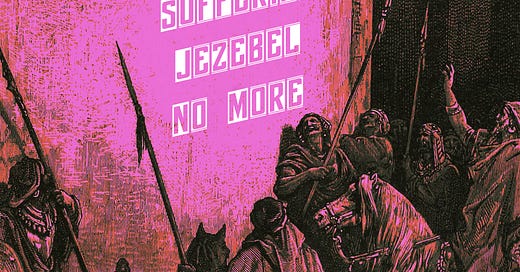







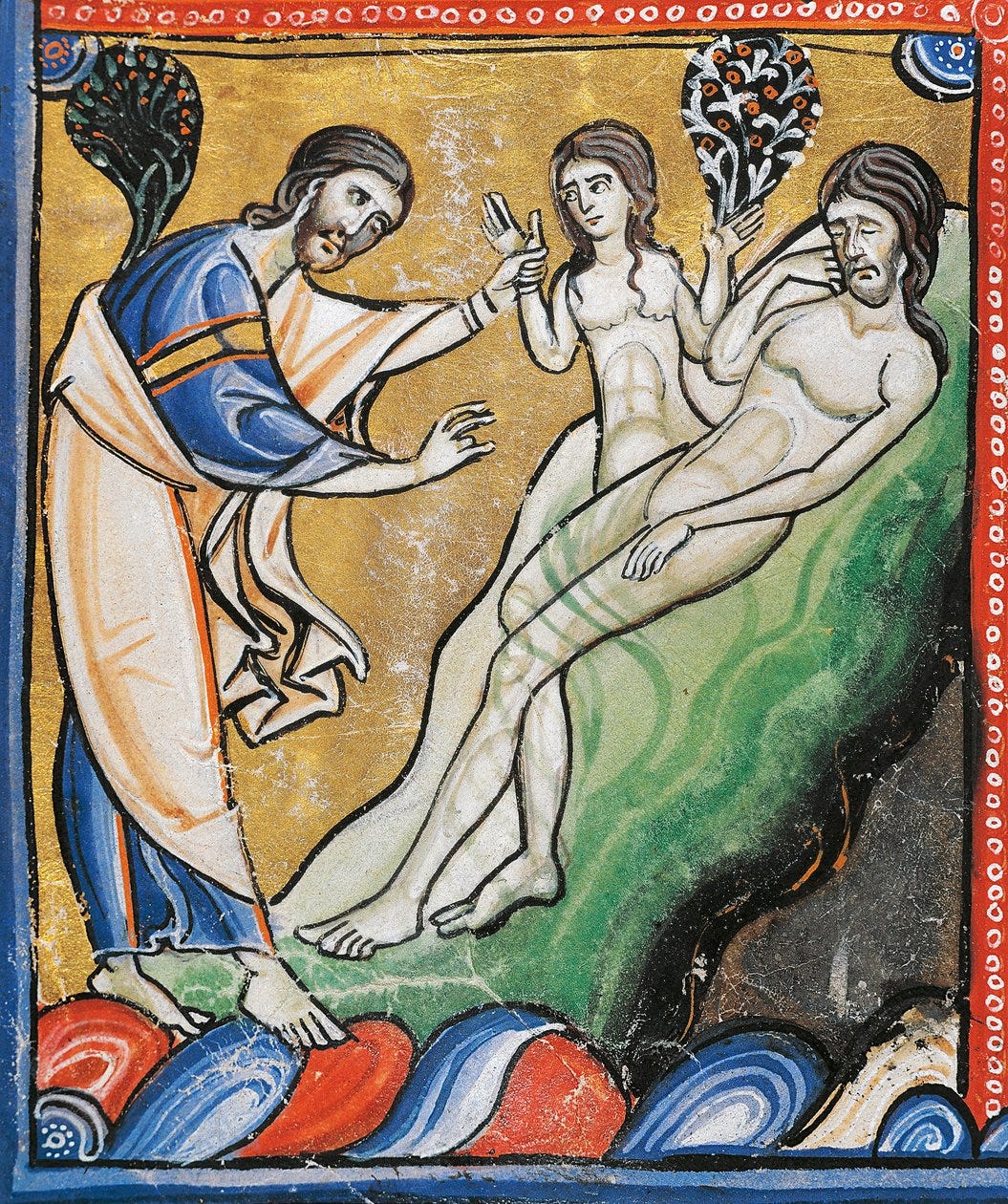
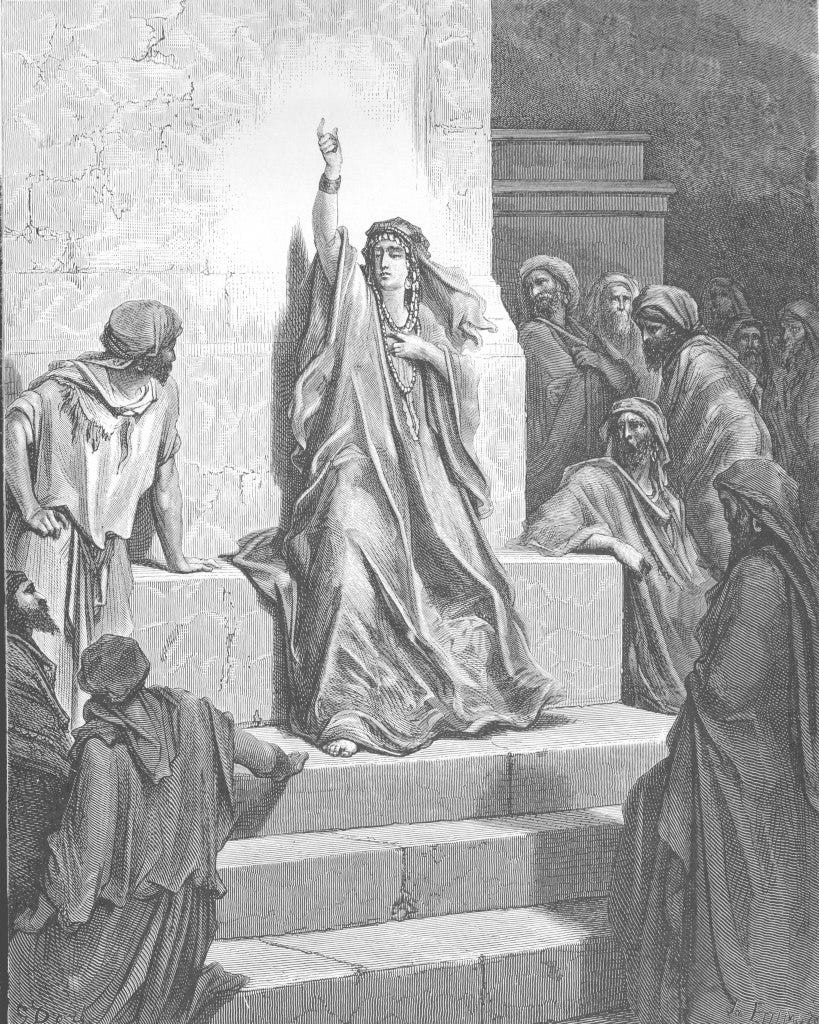

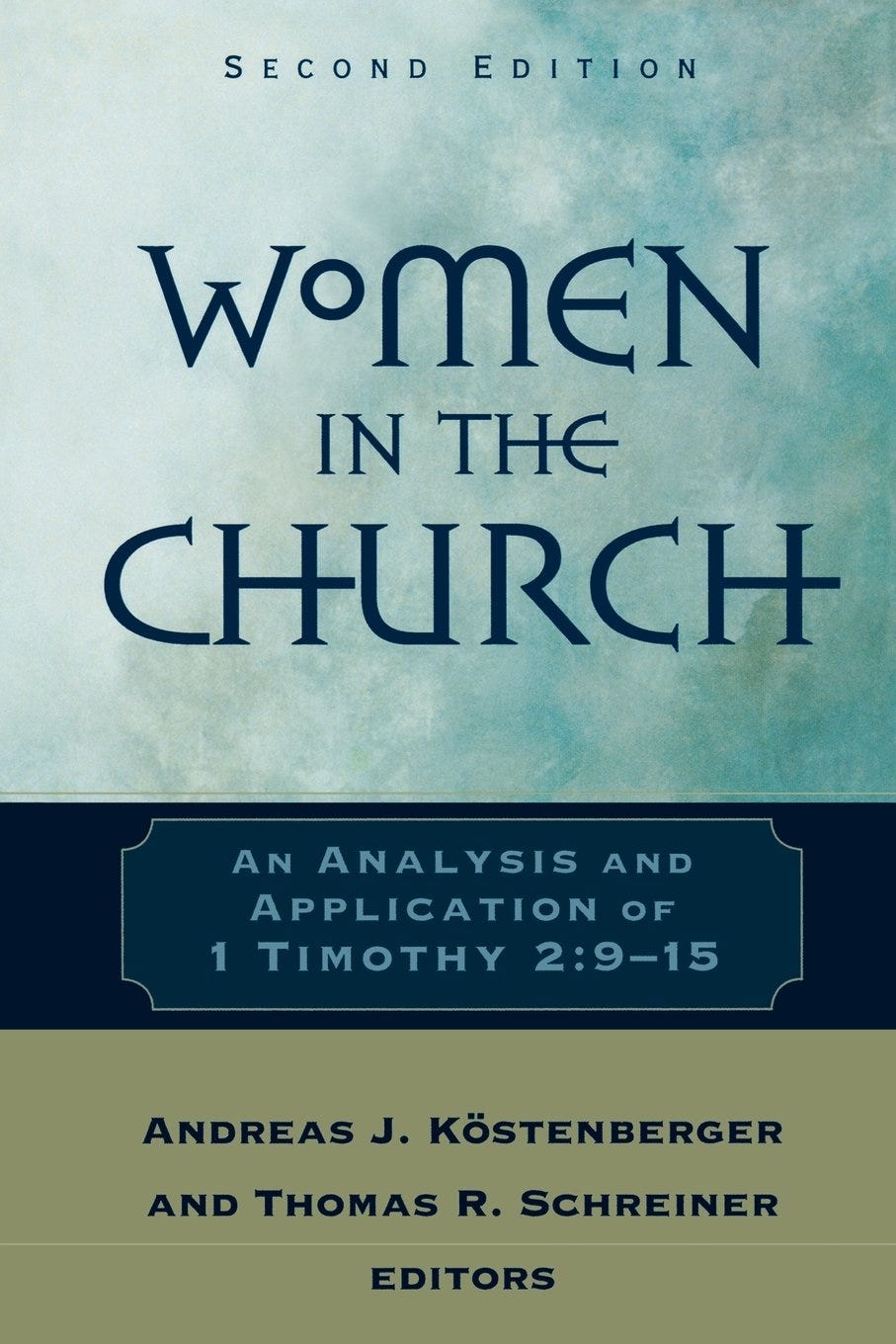
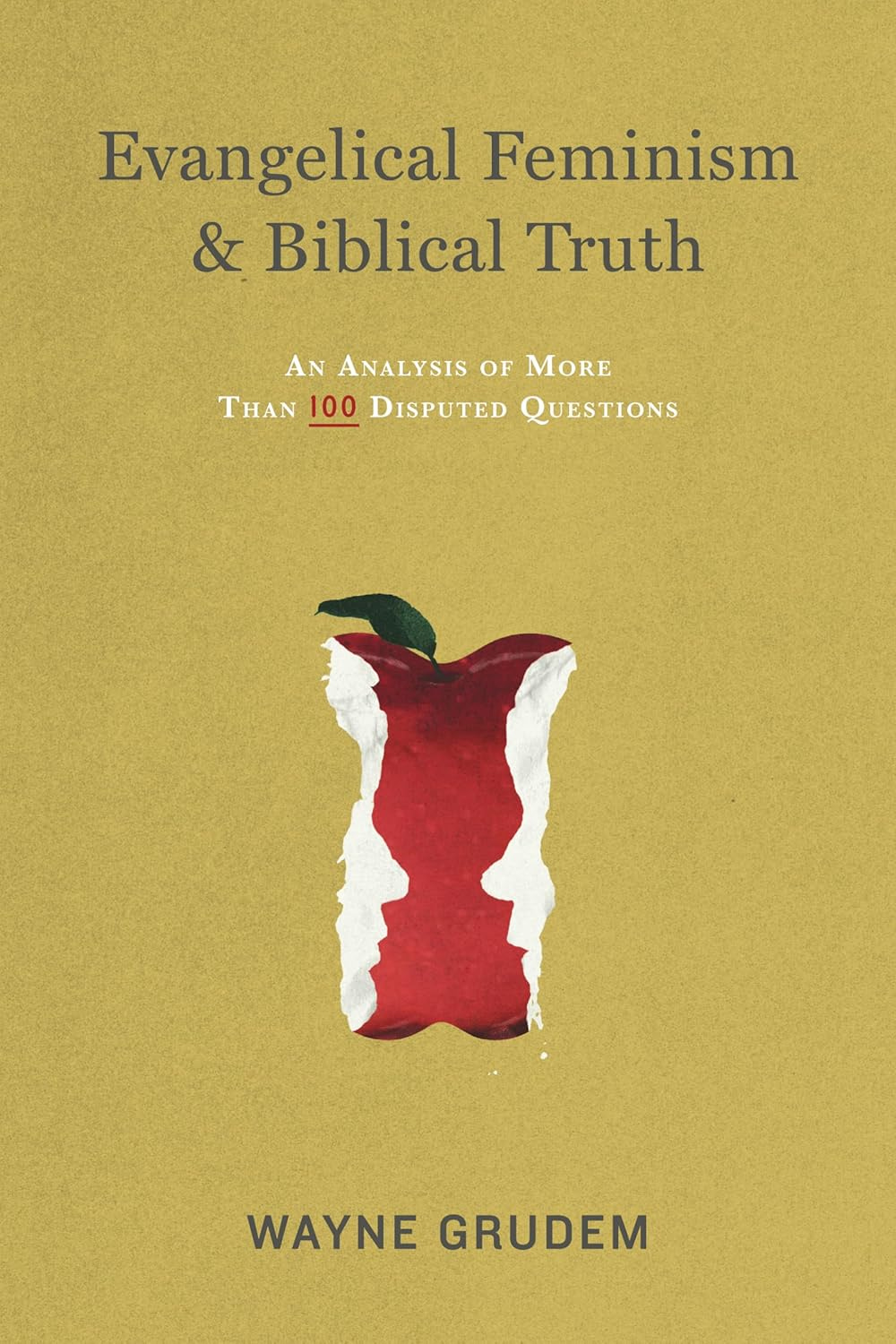
Thank you for this. Very reaffirming. I just saw a video talking about why the snake approached Eve not Adam. This reaffirms what she said. Eve didn't know GOD. HE had talked directly to Adam. Adam was to teach and direct Eve in the knowledge of GOD. This appointment by Trump really concerns me. More than any other thing he has said or done. Remember when Nancy Reagan brought a female "seerer" into the White House.
Not sure what that article was describing as Presbyterian/Reformed. In the OPC and PCA there are exactly ZERO women Pastors/Elders.